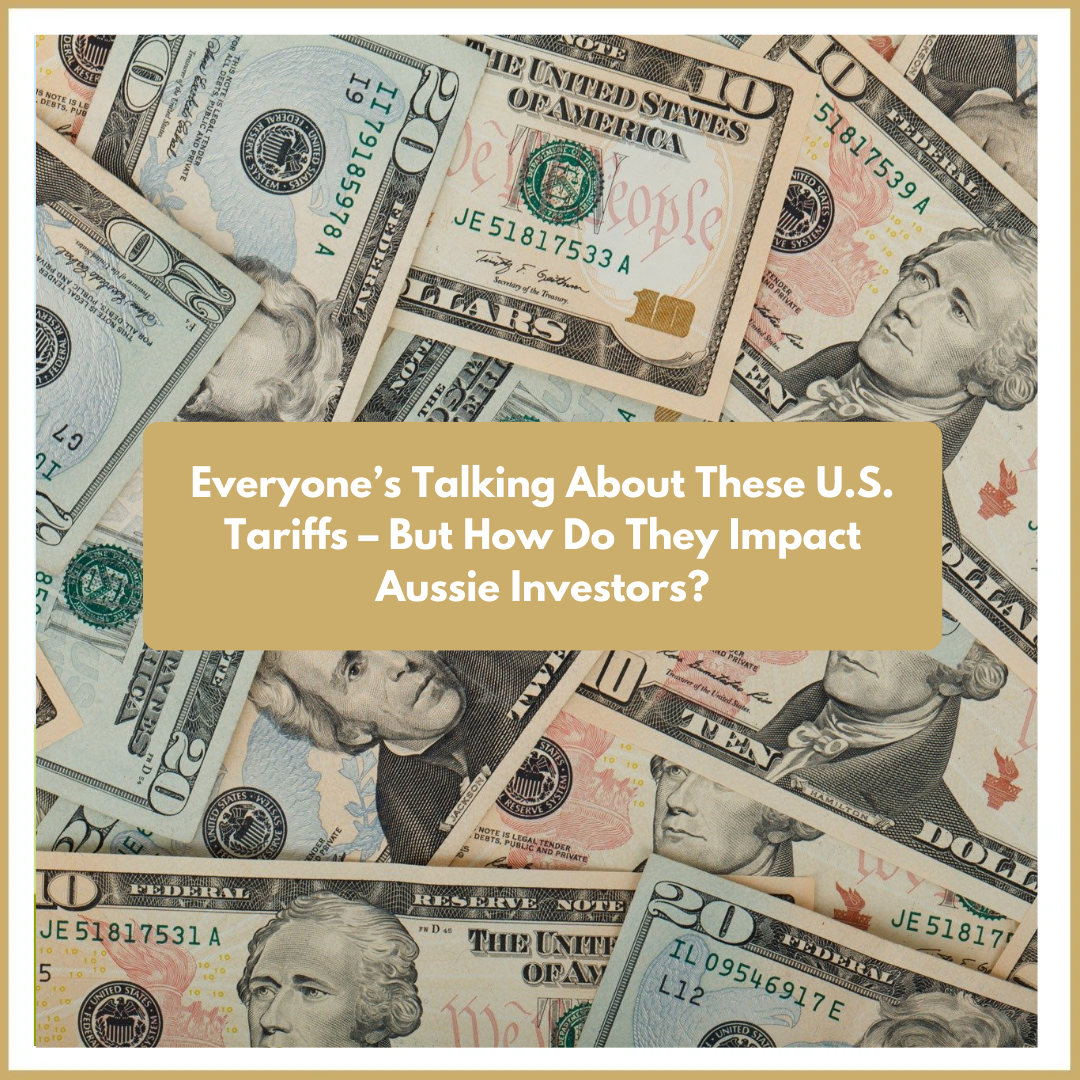Why Are U.S. Tariffs Suddenly Everywhere?
Unless you’ve been living under a rock, you’ve probably seen the headlines: the U.S. has rolled out a fresh wave of tariffs on global imports, including a 25% tariff on steel and aluminium, and—more recently—a new 10% baseline tariff on all imported goods, including those from Australia.
On the surface, it might seem like just another round of political posturing from Washington. But if you hold U.S. shares, global ETFs, or your super fund has international exposure, these changes are hitting closer to home than you might realise.
Let’s Break It Down: What Actually Happened?
- March 12, 2025: The U.S. government imposed a 25% tariff on all steel and aluminium imports, removing previous country exemptions.
- April 2, 2025: A 10% universal tariff on all imports was announced, affecting trading partners across the board—including Australia.
📉 The S&P 500 responded with a 1.6% drop, while global markets—including the ASX—saw a dip as investor nerves kicked in.
📦 Australia, as a resource-exporting nation, now faces new barriers to selling into the U.S., particularly for commodities and materials.
This isn’t just about metal and machinery. It’s about how interconnected markets react to uncertainty—and how that impacts portfolios worldwide.
Why This Matters to You (Yes, You)
If you’re like many Australians, your super fund, investment account, or ETF portfolio includes exposure to the U.S. economy. And when the U.S. economy sneezes, global markets—including ours—often catch a cold.
You might see:
- 📉 Volatility in your super or direct share holdings
- 💸 Unexpected dips in your ETF balances
- 🔄 Ripple effects on industries tied to global supply chains, including tech and transport
Even if you’re not directly investing in metals or U.S. manufacturers, market-wide sell-offs can spill over into unrelated sectors.

So… What Should Australian Investors Do About It?
First, don’t panic. Tariffs are a tool in international economics—one that often creates short-term volatility but doesn’t always translate into long-term loss.
But it does mean this:
📍 You need to understand your exposure
📍 You need a smart, diversified strategy
📍 You need to stay informed—and ideally, advised
Global Diversification: Still the MVP
Here’s the good news: if you’re diversified beyond just U.S. shares or Australian equities, your portfolio is likely more stable.
Global investing—when done strategically—can help spread risk, hedge against currency fluctuations, and expose you to growing regions that aren’t entangled in every U.S. political decision.
Schroders recently highlighted how global equities can provide resilience during geopolitical and economic tension—including times exactly like this. You can read their full insight here.
3 Simple Actions You Can Take Today
1. Review your portfolio’s exposure to the U.S.
Check how much of your super, ETFs, or managed funds are tied to U.S. equities. You might be more exposed than you think.
2. Look at international diversification
It may be time to broaden your global exposure—think Europe, Asia, or emerging markets that have different economic cycles.
3. Get a second opinion
A financial adviser can help you decode the headlines and tailor a strategy that aligns with your long-term goals and comfort with risk.

The Role of a Financial Adviser (Hint: It’s Not Just for the Wealthy)
Whether you’re investing through super, ETFs, or direct shares, navigating global economic changes can be overwhelming.
A good adviser will help you:
- Understand how U.S. tariffs and global politics affect your money
- Adjust your investment strategy to reduce risk and increase opportunity
- Make informed decisions instead of reactive ones
- Help you get to your goal and ensure the noise doesn’t distract you
Final Thoughts: Tariffs Might Be Political—But Your Money Isn’t
The latest round of U.S. tariffs is more than just another headline. It’s a reminder that global policies affect your wealth, whether it’s in super, shares, or ETFs.
But with a bit of smart strategy—and the right advice—you can stay ahead of the curve, not behind it.
👉 Ready to check how exposed your portfolio is? Speak with a financial adviser and take control of your investment future today.
🔗 Helpful Resources
- Schroders: Global Equities in Political Environments
- AP News – S&P 500 Drops After Tariff Announcements
- Reuters – Dollar Slips as Investors React to Tariffs
Any discussion in this article does not take into account your objectives, financial situation or needs. Before acting on it, you should consider whether it’s appropriate to you, in light of your objectives, financial situation or needs.

